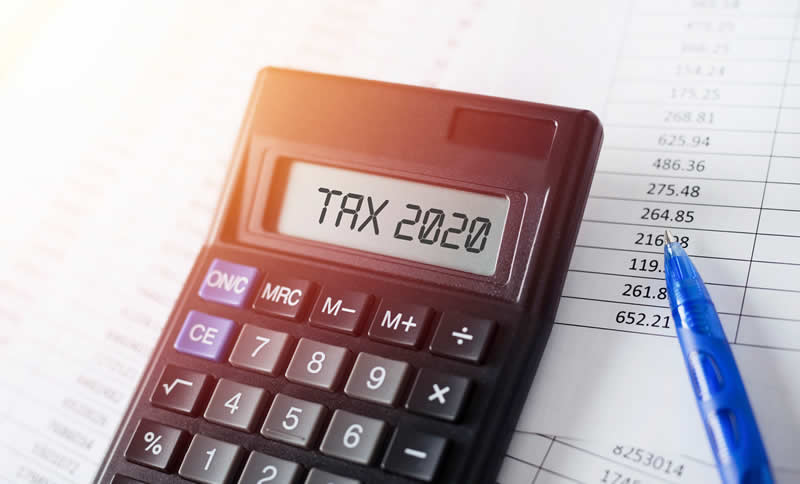Taxation 2020 – Deferred to June 2020

Every February, Canadians open their shoebox of receipts and begin preparing to file their yearly business tax returns. Ensuring you file your personal and business taxes accurately and on time will help you avoid any possible penalties. And, preparing ahead of time can help you get your income tax returns done right away, so you can continue focusing on your business and the year ahead.
This year, we have been given additional months to prepare and file our tax returns due to the Coronavirus concerns. Revenue Canada outlines the support and assistance that is being given to Canadian business owners, and the Prime Minister has announced that due dates for tax filing deadlines has been extended.
What You Need to Get Together
Business owners have a number of items they will need to keep track of and gather together in order to complete tax returns. It’s best to keep things organized from the start, rather than scrambling to find these items when it comes time to file taxes.
These would include a number of records of business expenses, income and other transactions that can be used for tax deductions. Keeping these organized throughout the year makes filing taxes a much easier process and helps ensure you don’t miss including anything.
These documents include:
Income statements and records:
- Sales
- Cash register records
- Receipts
- Contracts
- Bank deposit slips
Business expenses should include:
- Date of the purchase
- Supplier’s name and address
- Buyer’s name and address
- Description of the goods or services
- Business number of the vendor, if applicable
Property records:
- If you buy, sell or trade property, records of these transactions should also be kept, and should show the date the transaction was made, as well as the amount of the transaction. Items that are NOT included as part of property records include mortgages, mortgage insurance, rental income and maintenance expenses.
When to File Your Taxes
The deadline to complete your personal and business tax filings has been extended this year. For small business owners, individual income and business income would both be filed together, within the same filing. After this date, interest penalties would be applied to any amount owing.
Corporations will complete separate tax filings from the individuals who own the corporation. The deadline for filing corporate taxes will depend on the fiscal year end that was set by the corporation. A corporation has 6 months after their fiscal year end to get their corporate tax return completed.
Tax rates can vary, depending on the business income. You can find more information here about Incorporation and Taxation and how much you will pay in taxes as a registered business.
How to Keep Yourself Organized
Keeping track of expenses, profits and other transactions can be done either manually or electronically. When these documents and records are well organized, filing your personal and business taxes is so much easier.
Having easy to use accounting software, such as QuickBooks or Sage can help track many of these transactions. If you’re savvy with numbers and able to keep on top of your record keeping, accounting software may be just what you need to keep things in order.
If you aren’t as confident with your bookkeeping skills, or would rather have someone else do the work, an experienced accountant or bookkeeper would be your best resource for finding a highly competent person to do this task.
There are a number of different apps available that make tracking your claim-able expenses easy.
- Mileage: When travel expenses are being considered, a mobile app tracker such as TripLog makes it easy to separate personal travel from business travel.
- Purchases: Hanging on to any receipts for business related purchases can be cumbersome and archaic. A receipt management app, like Expensify, lets you scan receipts as you receive them, so you don’t have to worry about losing your paper copies.
- Payroll: Expenses for employee payroll are easily tracked with an app like TSheets, which keeps an accurate count of hours worked and lets you do away with paper timesheets.
Getting Your Tax Filing Completed
There are a number of options for getting your taxes filed, whether you prefer to do it yourself or have someone else do it for you. If you keep yourself well organized and are confident in your abilities, you can choose to prepare and file on your own using a number of free and paid software options.
Electronic filing is the fastest way to get your income tax submitted, and to get any possible return sent by direct deposit. Some of the most popular online tax software options include:
If you would prefer having an accountant or tax preparer do the filing, you would simply provide them with all of the information and documents they would require. You can either look for a tax professional in your area, or use one of the more popular companies, like H&R Block or Liberty Tax.
Regardless of whether you choose to do the filing yourself or have a tax expert do it for you, make sure all of the filing requirements are included and that you take advantage of any potential tax deductions or other tax saving opportunities. And, ensure your filing is done on time in order to avoid any potential penalties.
Filing Small Business Taxes vs. Corporate Taxes
There are a number of advantages corporations have the opportunity to utilize, especially when it comes to income tax purposes. Canadian small businesses complete their income tax returns together with the personal tax filings of the business owners. This means that an individual’s income and the business income are combined together and filed as one earned income, potentially leading to a much higher tax rate being paid. Corporation income tax returns are done separate from the business owners, keeping the personal and corporate income separate.
Income tax rates are much lower for corporations, and there are also a number of business deductions and corporate tax credits that can be utilized. If you are currently registered as a small business, you may want to get advice from a tax expert about whether it would be more beneficial to change your small business to a corporation.
For information about both Corporation income tax and small business tax filings, Revenue Canada provides a cache of detailed information online, and can also provide information by phone at 1-800-959-5525.
Ontario Business Central has been assisting those who wish to open and grow their businesses since 1992. Should you have any questions, please feel free to reach out to our staff for additional information and assistance.
inquiries@ontariobusinesscentral.ca
Toll-Free: 1-800-280-1913
Local: 1-416-599-9009
Fax: 1-866-294-4363
Office Hours: 9:00am – 5:00pm
Monday – Friday E.S.T.
Ontario Business Central Inc. is not a law firm and cannot provide a legal opinion or advice. This information is to assist you in understanding the requirements of registration within the chosen jurisdiction. It is always recommended, when you have legal or accounting questions that you speak to a qualified professional.


